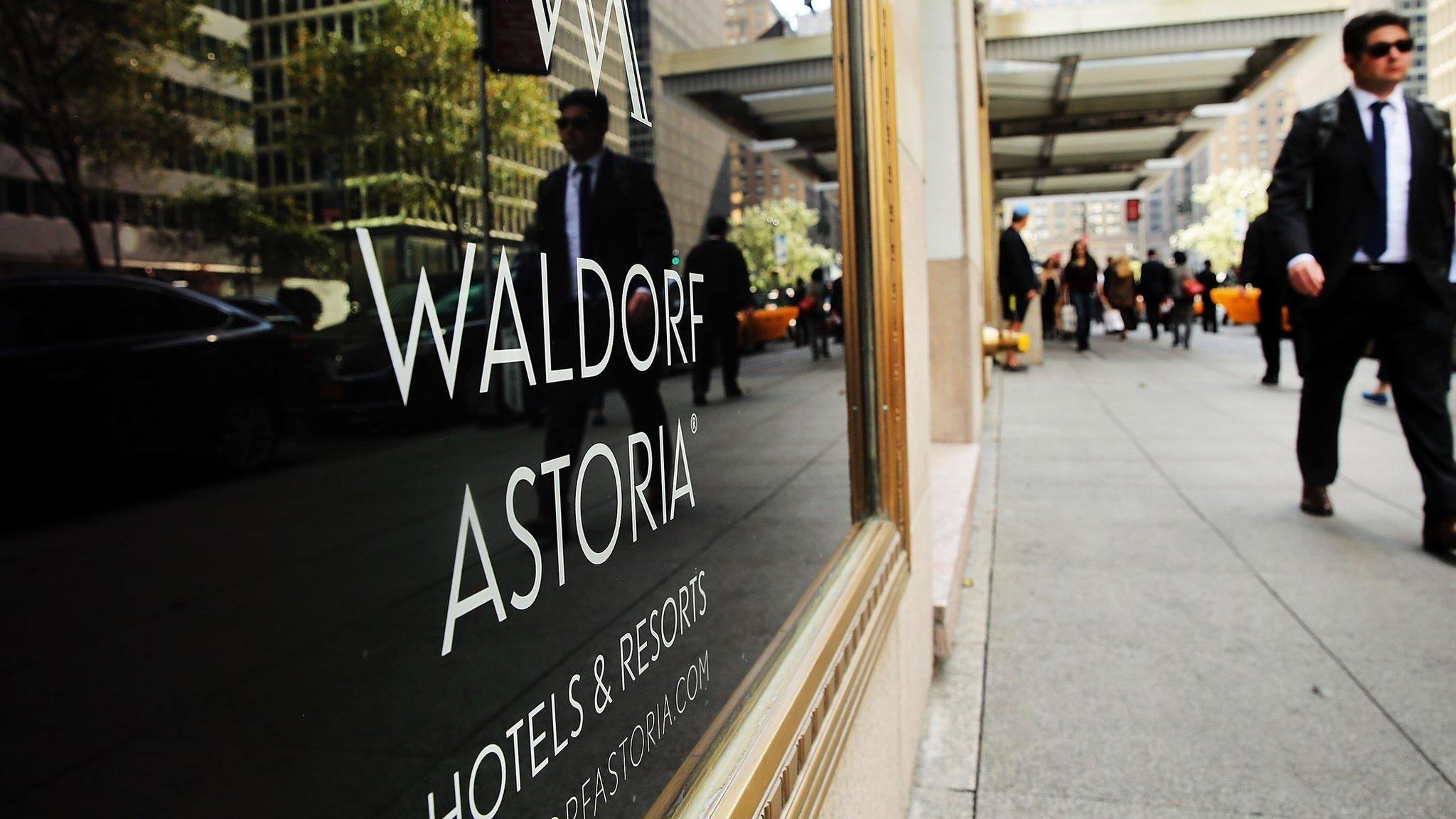Anbang wants to buy Starwood, but who is behind the company?
- Published
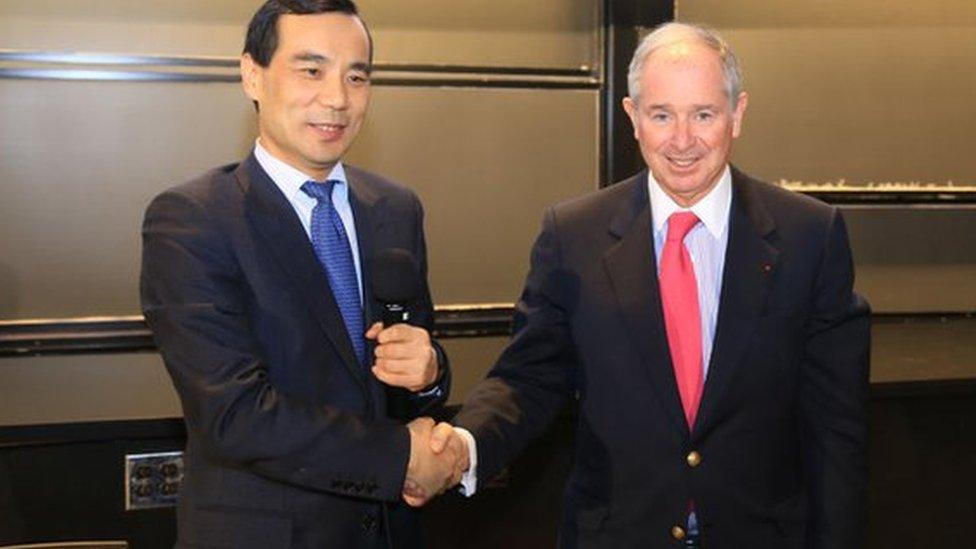
Anbang chairman Wu Xiaohui (left) is one of China's most politically-connected businessmen
It started out as a car insurance company in the Chinese city of Ningbo with some powerful state-owned backers.
After just over a decade, China's Anbang Insurance Group is now one of the country's corporate goliaths with an increasingly large international portfolio and interests ranging from banking to traditional Chinese medicine.
However, Anbang is still considered an "opaque" company, known mostly for its grandiose plans, a huge war chest of cash, and few qualms over spending it.
The Chinese firm first came to prominence when it bought New York's landmark Waldorf Astoria hotel last year for $1.95bn (£1.35bn), then the biggest US real estate deal by a Chinese buyer.
The sale price to many was extravagant; according to some calculations it worked out as paying more than $1.3m per room.
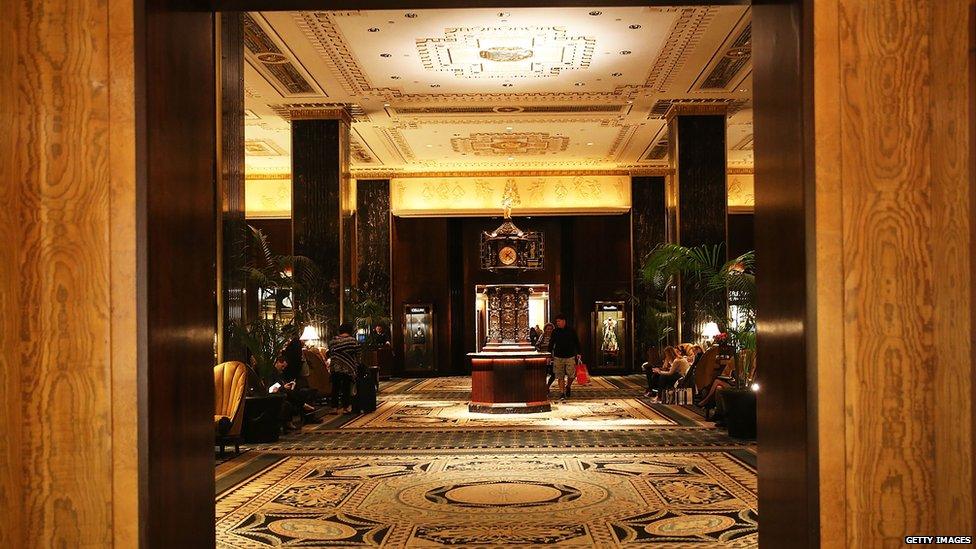
The current jewel in Anbang's property crown is the landmark Waldorf Astoria hotel in New York
Earlier this month, Anbang topped its own record by paying private equity firm Blackstone $6.5bn for the ownership of Strategic Hotels & Resorts, a portfolio of upmarket hotels and resorts.
That purchase added 16 luxury properties across the US to Anbang's holdings, including the Ritz-Carlton Half Moon Bay, and the Four Seasons hotels in Silicon Valley and Washington.
Now, Anbang is in the news again mired in a bidding war over Starwood Hotel & Resorts with Marriott International.
Anbang has tried to buy Starwood thrice before, but the latest offer of nearly $14bn in cash for the company may finally prove successful.
Political connections
So who are the powers behind Anbang and its global acquisition spree?
Anbang chairman Wu Xiaohui is considered one of the best politically-connected men in China having married the grand-daughter of former leader, Deng Xiaopeng.
The company board also includes the son of a top military commander under former leader Mao Zedong and the son of China's former prime minister Zhu Rongji.
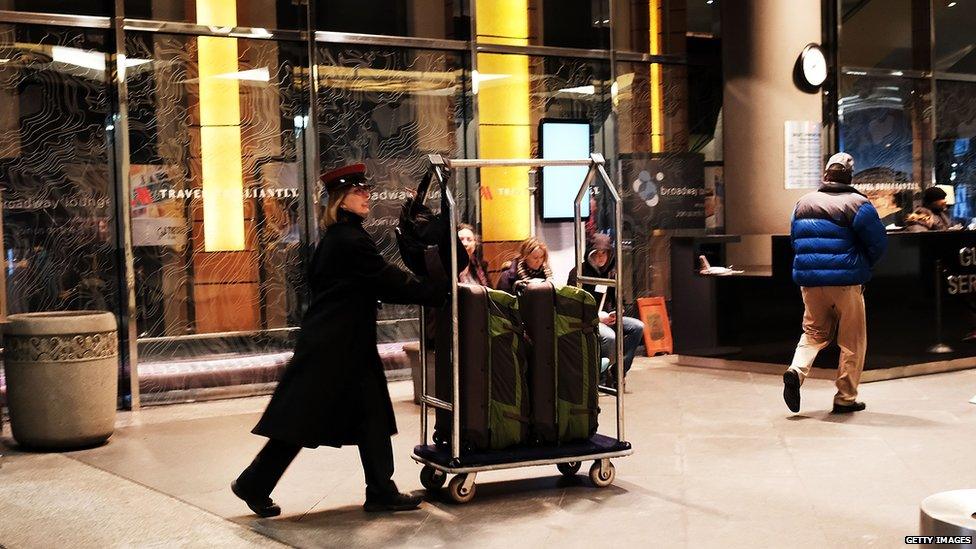
Anbang is bidding against Marriott International for control of Starwood Hotels & Resorts
Shaun Rein, the managing director of China Market Research in Shanghai told the BBC that "it's clear they have political backing".
"To grow that fast internationally and get the approvals requires strong connections."
Mr Wu, 49, has never given a press interview and is considered "reclusive" but at a Harvard event in Beijing last year, he spoke extensively, external about his firm's investment strategy.
"The total number of airline miles travelled by [the international investment] team is equal to a round-trip between the earth and the moon, which is a testament [to] our investment decision process," he said.
"We must win the first battle and every battle thereafter, as we are representing Chinese enterprises going global".
Diverse interests
Insurers are considered among the safest companies to deal with because they have plenty of capital and tend to invest in less risky and lower-yielding assets.
But China's Anbang has been turning that notion on its head.
When founded in 2004, Anbang had capital of about 500m Chinese yuan. On its website, the company now claims to have total assets of 1.9tn yuan ($300bn, £200bn).
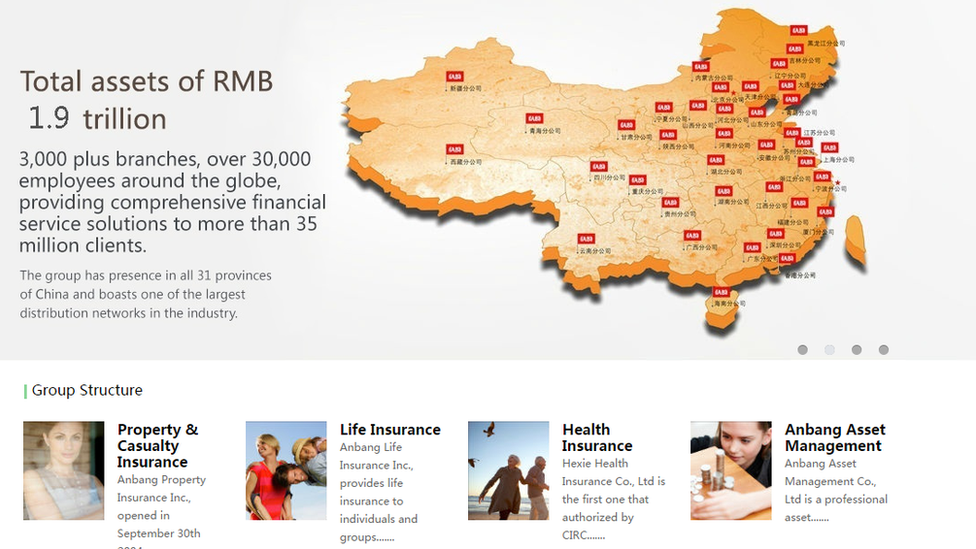
China's Anbang Insurance Group has rapidly become one of the country's biggest conglomerates
In a short span of time, it has transformed itself through a series of foreign acquisitions, including Belgian insurer Fidea Assurances and Delta Lloyd Bank.
Anbang has also expanded its presence domestically by buying stakes in China's biggest private lender Minsheng Bank, property developers, a wind turbine maker and even a traditional Chinese medicine company.
However, there have been questions about how Anbang plans to finance its overseas purchases, given margins in China's insurance business aren't very large.
Mr Rein suggests some of the concerns are overblown and that the firm has managed to attract billions of dollars in private financing.
"You're seeing Chinese companies looking to become global players. They're well-capitalised and incredibly aggressive," he told the BBC.
He compared them to Japanese firms in the 1980s, where many of its biggest names would buy overseas rivals and replace the management with their own.
"The Chinese are very different. They're looking to buy brands, technology and management know-how," he said.
Ultimately, it's clear that for Anbang, their biggest bet is on the safety and prestige of prime US property.
- Published28 March 2016
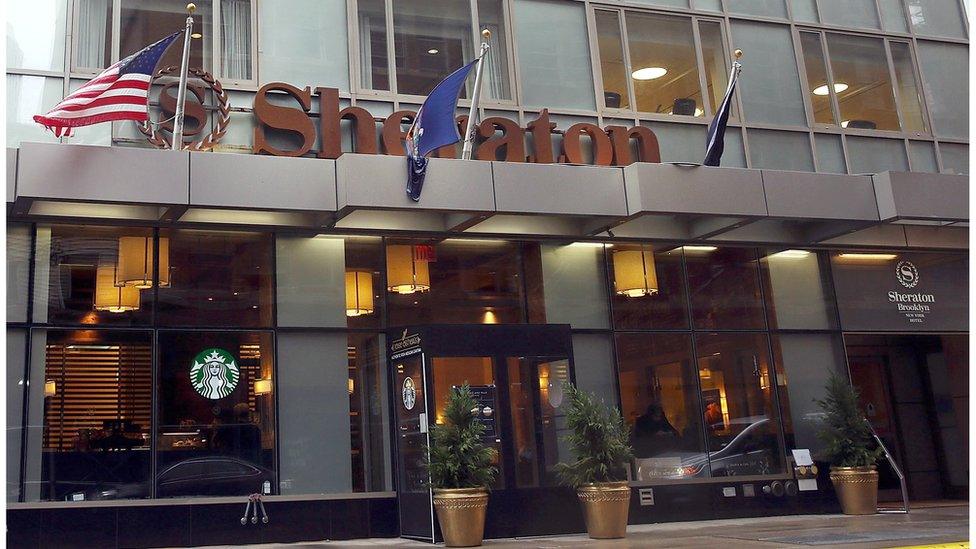
- Published20 March 2016

- Published14 March 2016
